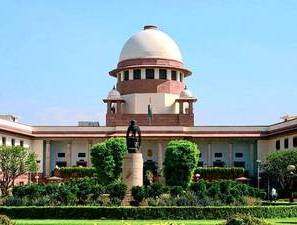

By Our Editorial Team
First publised on 2023-05-12 08:07:35
Two Supreme Court judgments on Thursday, though on different subjects, had the common thread of federalism. In both the judgments, the role of the representative of the Centre in the state - the Lieutenant Governor (LG) in case of Delhi and the Governor in case of Maharashtra - was under the scanner. The court was severely critical of Maharashtra governor B S Koshyari for entering the 'political thicket' and being 'an arbiter of intra-party disputes' in ordering Uddhav Thackeray to take the floor test without "objective material" in his hand. It also castigated the Centre for taking over executive powers of an elected government in Delhi through the LG and said that it would "completely abrogate the federal system of governance and the principle of representative democracy".
If governments at the Centre wish to control duly elected governments in the state or place hurdles in their path, they are going against the will of the people. Since the will of the people, as expressed in who they choose to govern them, is separate and distinct for the Centre and the state, it is clear that the people do not want the Centre to control the state if they have elected a different party to rule in the state. This is a simple theory and if the ruling party at the Centre gets comfortable with it, the federal system will run smoothly. The desire for double-engine governments must be expressed to the people and if they reject it, it should not be, and cannot be, put in place by force. Otherwise, having separate election for the Lok Sabha and state assemblies loses its meaning.











